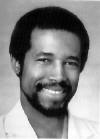 If you heard only of Ben Carson's childhood you would be amazed to learn he is now the director of pediatric neurosurgery at Johns Hopkins Medical Institutions.
If you heard only of Ben Carson's childhood you would be amazed to learn he is now the director of pediatric neurosurgery at Johns Hopkins Medical Institutions.
The inner city of Detroit, Michigan was his home and as a youth he gained the nickname of "Dummy." He looked destined to live the fate of too many that grow up in such circumstances. His mother had other ideas; she curtailed TV watching and required her boys to read two books a week and write reports on them. (They didn't know it at the time, but she couldn't read the reports.)
There are at least three ways to learn: visual (seeing things in writing), auditory (lectures, audio-tapes), and kinesthetic (learning by doing, hands-on). At school Ben had been in an auditory environment and things weren't sinking in. Reading turned out to be his strong point and a new world opened up to him. Within a year he went from the class dummy to the top of the class. He graduated from high school with honors went on to Yale University and then received his medical training at the University of Michigan.
At the outset of his medical schooling he again struggled to learn the material. His councilor even suggested that medical school might not be for him; he knew better. He stopped attending most of the class lectures and immersed himself in his medical texts and any other related texts or materials he could get his hands on. In addition, he made a point of attending all lab sessions to get the hands-on experience. His dramatic improvement shocked not only his councilor, but himself as well.
The Big Picture is not about Ben Carson the neurosurgeon, it's about what was required to take Ben Carson from what was--by all outward appearances--a no account black kid in the slums of Detroit to the top of his field in the medical profession and then beyond.
The principles he used will help us all succeed in whatever we do in life. These principles transcend race, religion, personal background and political correctness. We don't alway like to hear them, but they are indispensible just the same: working hard; accepting hardships and working through them; refusing to accept the "I'm a victim someone should do something" mentality so prevalent in our society; doing things differently if the established way does not work for you; being nice to people and doing good things for them just because you can; and, if you are a parent, accepting the responsibility and realizing that being a parent is more important than anything else you may do (even brain surgery).
Finally, Ben Carson is a Christian he has no reservations about that and he has a deep abiding faith in God and believes it has made all he does possible.





